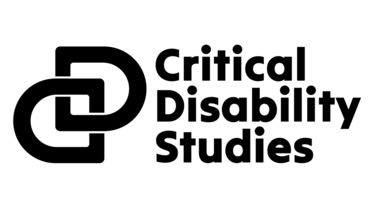Critical Disability Studies
A Research Cluster in the School of Education and iHuman at University of Sheffield that enjoys an interdisciplinary and international reputation for disability studies.

Critical Disability Studies at the University of Sheffield enjoys an interdisciplinary and international reputation for critical disability studies. We span disciplines including education, psychology, sociology, history, geography, childhood and youth, health, social policy, arts, humanities and cultural studies. Our foundational school is the School of Education and Critical Disability Studies forms one of the Research Clusters of this school led by Dr Lauren White.
We find it helpful to understand our shared approach to research and scholarship as critical disability studies: realising disability’s potential to inform knowledge, learning and practice across a host of spaces including activism, arts, education, society, health and social care and beyond
Our work builds upon a legacy left by Sheffield Academics - in the School of Education - such as Len Barton, Felicity Armstrong, Claire Tregaskis and Paul Ramcharan whose commitment to inclusive education and disability studies informed some of the foundational work in disability studies in our university. Over the last decade our community has grown with doctoral students, early, mid and late career academics developing a distinct identity in relation to disability research, theory and analysis. It is worth noting that critical disability studies is a dynamic, self-critical field that is responsive to the challenges of contemporary times.
Our approach to the study of disability starts but never ends with disability. In this sense, we seek to engage in scholarship that is always intersectional, recognising that disability intersects with race, gender, age, class, place and sexuality and other identities. This entails an eclectic use of theory, engaging with critical frameworks such as critical race theory, black feminism, postcolonial theory, queer studies, trans studies, new materialism, posthumanism to name but a few.
We aim to theorise and challenge the conditions of disablism (the social, political, cultural and psycho-emotional exclusion of people with physical, sensory and/or cognitive impairments) and ableism (the contemporary ideals on which the able, autonomous, productive citizen is based).
Our research seeks to be inclusive and participatory: working alongside disabled people as experts, collaborators, artists, researchers and theorists in their own right. Our research and scholarship has a number of features including:
- A commitment to social, cultural, minority and intersectional models of disability;
- Desiring disability as an opportunity to rethink what it means to be human;
- Disorientating ourselves and others when orthodoxy and tradition reign;
- Centralising disability as the subject and object of study;
- Exploring disability’s disruptive potential to challenge what passes as the normative order;
- Holding in place a commitment to understanding and challenging the distinct though complementary practices of disablism (the exclusion of people with physical, sensory and cognitive impairments) and ableism (the ideological preference for able-bodied and mindedness).
- Positing disability as a key framing for new kinds of pedagogy, politics and practice;
- Challenging disability knowledge in education, technology, health and social care arenas;
- Creating challenging dialogues and risky conversations with professionals and researchers;
- Ensuring that any research we do is carried out in partnership with disabled people and/or their representative organisations.
- Connecting to critical psychology as a sister field, to challenge given psychological orthodoxies and discourses of deficit.
- Interrogating the disablist and abelist underpinnings of research methods and methodologies and finding inclusive and participatory alternatives.
- Colleagues in Critical Disability Studies at the University of Sheffield are Managing Editors of the international Journal of Disability Studies in Education and through this work we are keen to support the scholarship of new and emerging scholars.
A flyer summarising some of our projects in 2023
Activities 2025 - 2026
The Disability Dialogues Lounge is an online collaborative space for everyone within the CDS community to come together, guided by a key prompt for the month.
Letters to Critical Disability Studies - On the 17th July 2025, The Critical Disability Studies team met to think about who we are and the work we do within the field. This was supported and facilitated by the creative work and community spirit of Dal Kular. You can find out more about Dal’s work via this page: https://www.dalkular.com
Colleagues in Critical Disability Studies help support the curation of Disability Dialogues an online space that celebrates the work of emerging scholars in our field.

iHuman
How we understand being ‘human’ differs between disciplines and has changed radically over time. We are living in an age marked by rapid growth in knowledge about the human body and brain, and new technologies with the potential to change them.
